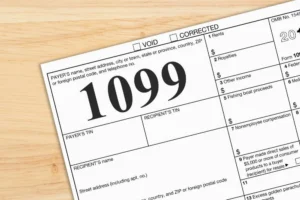It can feel challenging to find work these days, especially if your application requires you to check the box stating that you’re not a United States citizen. This is where Internal Revenue Service (IRS) Form 1040-NR, U.S. Nonresident Alien Income Tax Return, comes in. This form is what you must complete when reporting taxes to the IRS each year, and you will then either pay what you owe or get a refund.
Earning money here means you need to pay taxes to the government. Nonresident taxpayers may need to handle their taxes a little differently once they’re on the job, though, which makes understanding the requirements — and any changes to them — increasingly important to avoid IRS penalties.
Those who might need Form 1040-NR should explore the details to make sure they’re filling out their taxes and managing them correctly. It’s not always straightforward, but there are specific steps to take. This guide will give you a better idea of how to fill out IRS Form 1040-NR, ensure you are handling all those important details for tax purposes, and answer some frequently asked questions about this form.
How the IRS Defines a ‘Nonresident Alien’

This term refers to a person residing in the U.S. who is not a citizen and does not meet either of the tests for being a ‘resident alien.’ Here’s more about the requirements:
Green Card Test
The green card test says you are a lawful permanent citizen of the U.S. and have a “green card” that attests to that fact.
Substantial Presence Test
The substantial presence test for the calendar year says you have resided physically in the U.S. for at least 31 days out of the current calendar year and 183 days out of the past three calendar years. That includes all the days you were present during the current calendar year, a third of the days you were present during the previous calendar year, and a sixth of the days you were present in the year before that.
Determine Your Status
You should first ensure neither the green card test nor the substantial presence test exempts you from filing form 1040-NR. A tax expert can help you figure this out if needed.
The IRS taxes resident and nonresident aliens differently in the U.S., and they must fill out different forms to file their taxes properly, so determining whether you are a nonresident alien is the first step to getting your taxes done the right way. You will fill out Form 1040-NR, which is different than the tax return document that U.S. residents complete each year.
What Is Form 1040-NR?

IRS Form 1040-NR is the version of the IRS tax return nonresident aliens fill out as they conduct business in the U.S. and earn income in the country each year. This is particularly important if you plan to reenter the U.S. or apply for permanent residency status, as you will need to show that you made an effort to manage your taxes correctly.
Paying taxes is an important responsibility of people working and earning income in the country. It’s also important to know how to file the document properly once you’ve determined it applies to you.
5 Steps to Filling Out Form 1040-NR

Make sure you have the correct information on hand and that you’re ready to prepare and submit Form 1040-NR properly. An experienced tax attorney can help if you have questions or for help putting it together. Here are five steps to take to get this form filed:
1. Determine if You Need Form 1040-NR
You will need to file Form 1040-NR if you were a nonresident alien in the U.S. and worked or earned money in a “trade or business,” as outlined by the IRS. You may also need to submit this form if you represented a deceased person who would have filed this form, or you represent an estate or trust that needs to file it.
2. Gather All Necessary Information
Get your records ready to prepare your tax form. Form 1040NR will require the following:
- Your name
- Your identification number
- The country where you hold citizenship
- Your marital status
- Your dependents and their identifying numbers, plus their direct relationships to you
- How much money you earned
- Information about any adjustments or deductions you can claim. You may want to itemize deductions to maximize their value, but this may not always be the best option.
- Where you want your refund issued, if relevant
Always ensure that you have all relevant documents and information, because accidentally omitting info on your return can raise red flags with the IRS.
3. Report All Income
Filling out your income can become complicated quickly, so make sure you gather all info about money you earned in the U.S. during the calendar year, including income from investments, savings accounts, and anything earned from jobs, tips, or other sources. This includes money from an investment property, ordinary and qualified dividends, grants or scholarships, IRA income, capital gains or losses, and more.
4. Calculate Your What You Owe or Your Refund
Form 1040-NR can help you determine whether you’re entitled to a tax refund or if you need to pay taxes on your income that have not already been taken out of your paycheck during the calendar year.
5. File Form 1040-NR
Note that you can no longer use Form 1040-NR-EZ to submit this form, beginning in 2020. You can e-file your form or mail it to the IRS. E-filing your return can help you get your refund faster, if you’re eligible for one, reduce errors in the form, and use less paper. Figure out the method that works best for you.
Consider working closely with a tax attorney if you have questions about the information you must provide, especially about your income or your deductions. The IRS handles all these aspects carefully, so be thorough to avoid making a mistake. A tax attorney can also help you get your return filed accurately and quickly.
4 Common Problems When Filling Out Form 1040-NR

You always want to be aware of common problems associated with filling out Form 1040-NR to be sure that you receive the maximum amount for your refund or if you hope to increase your odds of changing your visa status in the coming years.
Always check the numbers carefully or work with a tax attorney to ensure your form’s accuracy. Reduce the odds of potential penalties by avoiding the following common issues:
1. Filing as a Resident Instead of as a Nonresident Alien Using Form 1040-NR
One of the most common mistakes is simply filling out your taxes as a resident rather than using Form 1040-NR. The regular Form 1040, U.S. Individual Tax Return, is not used by nonresident aliens. Form 1040-NR applies only to those who are not U.S. citizens or U.S. nationals and have not yet passed the two tests mentioned above.
Hint: If you used common tax prep software without thinking about your resident status, you likely filled out your forms incorrectly. Make sure you take steps to fix the error as soon as possible if you’ve already filed your return. Those who haven’t filed and are unsure what to do should consider working with an experienced tax attorney to learn more about filling out the form and submitting it correctly.
2. Filing With the Wrong Marital Status or Without Dependents
Your marital status makes a big difference in your tax deductions and withholding. Even taxpayers who got married late in the calendar year will still file as a married individual in the U.S. Always make sure you also report your dependent situation accurately.
3. Failing to File Tax Paperwork
You might not realize you need to fill out Form 8843 if you’re in the U.S. as a student, for example. Ensure you consult a tax attorney to learn more about the forms you must fill out and what information you must include.
4. Incorrectly Calculating Your Income
Some people struggle to calculate their income accurately over the calendar year. You must include all income earned within the U.S., no matter the source.
Consult a tax attorney to learn more if you have questions about what constitutes income. You may be earning in various ways while you’re living here, so make sure you understand the implications and how to report everything correctly.
FAQs About Form 1040-NR

It is entirely normal to have many questions as you’re completing Form 1040-NR for the first time. Here are a few frequently asked questions, answered:
Who Must File Form 1040-NR?
Nonresident aliens who were engaged in a trade or business in the U.S. during the applicable tax year need to file Form 1040-NR. The IRS also says: “You must file a return if you have U.S. income on which the tax liability was not satisfied by the withholding of tax at the source.” This means you still need to pay taxes on the income you received, even if it wasn’t withheld initially.
Another situation in which you need to file a return is to claim a refund of excess withholding or claim deductions or credits.
What if My Spouse Is a Resident Alien?
The IRS states that if your spouse is a resident alien, they can decide to treat you as a resident alien for tax purposes if you file their Form 1040 as “Married Filing Jointly.”
Do I Pay the Same Rate as U.S. Citizens and Residents?
Resident aliens will be subject to the same tax rates residents and citizens pay on their tax returns.
When Is the Tax Deadline?
The annual tax deadline is usually March 15 for the prior tax year. Events can change this date, however. The COVID-19 pandemic, for example, pushed the deadline for 2020 taxes back to May 17, 2021. Always be sure you research changes or discuss with a tax professional.
What if My Country Has a Tax Treaty With the U.S.?
Just because your country has a tax treaty does not necessarily mean you don’t have to pay taxes. Sometimes part of your income may be exempt. Review Publication 901, U.S. Tax Treaties, to read about treaties that may apply to your country.
What About Money I Earn in My Home Country?
The IRS cannot impose a tax on the income you earn in another country as a nonresident alien. You will only report the money you earned in the U.S. or U.S.-sourced income on Form 1040-NR.
There are many tax laws and requirements you need to be aware of before you get started, as you can see. Just remember that you will need to pay taxes if you earned money as a nonresident alien, and you will likely need to use IRS Form 1040-NR. You might want to consider leaving the rest to experienced tax professionals, who always know the latest changes and updates that impact your situation.
Need Help Filing Form 1040-NR? Contact Silver Tax Group

Filling out your taxes can be complex, even as a resident of the U.S. Any nonresident alien may need additional help filling out the required tax forms and making sure they understand their legal obligations. It’s a challenge at best to try to take on these tasks yourself, as they can get complicated fast. This is especially true if you are also trying to manage earnings from another country and are navigating those laws as well.
Silver Tax Group is here to help. We are a team of experienced professionals committed to helping you get your IRS issues resolved. We work with clients regarding tax debt resolution, consultations, audits, litigation, emergency tax services, and much more. We will also assist you if you need an offer in compromise or installment plan when you can’t afford your tax debt. We know exactly what you need to do to get your tax return submitted by the deadline each year.
Contact Silver Tax Group today to speak with an expert about any Form 1040-NR questions you might have.





